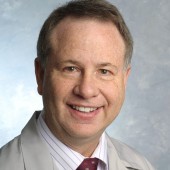Canceled Clients (4762)
Children categories

Train Your Body (438)
The show for fitness buffs or beginners. Expert guest from the American College of Sports Medicine (ACSM) discuss all areas of fitness, nutrition, athletics and sports medicine.
View items...
Staying Well (382)
RadioMD’s “talking” Health A-Z hosted by senior health correspondent, Melanie Cole, MS. Melanie interviews experts in the world of health, wellness, fitness and medicine.
View items...
Healthy Talk w/ Dr. Michael Smith (698)
Integrative physician, Michael A. Smith, MD is committed to providing listeners with the most current health information available.
View items...
Naturally Savvy (899)
Registered Holistic Nutritionist, Andrea Donsky and health expert Lisa Davis discuss their passion for living a natural, healthy lifestyle.
View items...
Eat Right Radio (48)
EatRight Radio, with experts from the Academy of Nutrition and Dietetics, discusses food and nutrition topics, healthy weight, allergies and health conditions, healthy aging, food safety and so much more. Give us 10-minutes and we'll give you the important information and expert advice from registered dietitian nutritionists to help you eat right, feel better, and live a healthier life. Hosted by Melanie Cole, MS.
View items...
Sharecare Radio (235)
Sharecare Radio, hosted by Sharecare’s own Dr. Darria Long Gillespie, SVP of Clinical Strategy at Sharecare, will appear live every Tuesday from 12 to 1 p.m. EST on RadioMD. Dr. Darria will break down the top health news of the week, pull in experts from around the country on a wide array of health topics and answer listeners’ live questions on all things health.
View items...
Wellness for Life (455)
On Wellness For Life Radio you will learn practical, easy-to implement tips to improve your life and start feeling better — the natural way.
View items...
The Wizard of Eyes (163)
Dr. Robert Abel Jr. talks about many of the important and unrecognized parts of our visual system which we so often take for granted. The show covers the usual common ocular disorders with an East/West approach to both prevention and therapy. The eye-brain connection is presented with information about memory retention, Alzheimer's, the myopia epidemic, and many more subjects. Dr. Abel discusses how the eye and vision are connected with remote parts of the body including your gut flora, musculoskeletal system, blood pressure, drugs and lifestyle. practical and simple health tips.
View items...
Code Delicious with Dr. Mike (135)
Code Delicious with Dr. Mike breaks all the rules. Unabashedly confronting the questions, concerns and conundrums that continually confuse both public and experts alike; Dr. Mike takes us on a tasty trip of inquiry.
View items...
CLEAN Food Network (98)
This show is a call to action for all the clean eating revolutionaries that care about their health and how and what they eat. Non-GMO, natural, organic . . . food the way nature intended. The clean food movement is huge and is growing exponentially. This companion program talks to experts in food preparation, healthcare, celebrities, and even those companies that care enough to provide the best, wholesome, organic foods and groceries.
View items...
Talk Healthy Today (213)
Looking to create your best self? Whether it’s good-for-you lifestyle hacks, smarter ways to supplement, or tasty tips to fuel optimal health, Talk Healthy Today brings you the latest research, tools, and common sense tips you need to get and stay healthy... starting today!
View items...
Be a Doer (17)
Be A Doer features master coach and TV personality John Abdo as he shares health and fitness tips aimed at getting you in shape – and keeping you there!
View items...The Power of Probiotics (3)
Probiotics is a major global industry. But like any industry, it had to have a beginning. Natasha Trenev is the daughter of an Eastern European family where the manufacturing of yogurt was a generational business. When Natasha emigrated to the US in the 1960’s, she brought with her 750 years of family experience with probiotics – and introduced the science (and the term itself) to her new country. Today, Natasha’s California-based Natren, Inc. is the recognized pioneer in probiotics and company founder Natasha Trenev has earned recognition as the Mother of Probiotics. Her more than 50 years of work in natural health is at the core of the unparalleled success of her company – and you will benefit from her depth of expertise in each and every episode of THE POWER OF PROBIOTICS.
Probiotics are live microrganisms that are commonly referred to as ‘friendly,’ ‘good’ or ‘healthy’ bacteria that function to help maintain the natural balance of organisms in the intestine. Throughout Natasha’s extensive work in the field of probiotics, she has always been amazed by how nature provides the very ‘good’ bacteria that can help overpower ‘bad’ bacteria to keep our digestive tracts functioning at peak performance. Properly cultivating friendly bacteria and ensuring their potency is at the core of the Natren Process. Natren is cited – by retailers, by the medical community and by consumers – as the best probiotic supplement available. Only Natren carefully chooses its probiotic cultures, formulates and manufactures its industry standard probiotics in its own plant and utilizes a specially-formulated oil matrix to protect probiotics bacteria to survive until they reach their destination in the upper small intestine. This is why only Natren is the most trusted probiotic supplement on the market. Truly, where other probiotic supplements promise – Natren Delivers.
To learn more about how probiotics can benefit your health, we are proud to introduce you to THE POWER OF PROBIOTICS with The Mother of Probiotics, Natasha Trenev.

Your Brain Health (24)
Noted Los Angeles-based neuroscientist and media personality Dr. Kristen Willeumier launches Your Brain Health with Dr. Kristen Willeumier, a podcast series that explores the latest news and information in the burgeoning science of brain health.
View items...Additional Info
- Segment Number 1
- Audio File naturally_savvy/1440ns3a.mp3
- Featured Speaker Tracy Piper, LAc
- Guest Website The Piper Center
- Guest Twitter Account @ThePiperCenter
-
Guest Bio
Tracy Piper, owner and founder of the Piper Center for International Wellness (formerly M.A.R.C. Holistic Center), is a Licensed Massage Therapist, Licensed Acupuncturist and Chinese Herbologist, as well as a Certified Colon Hydrotherapist. Tracy has extensive training in both Western and Eastern health services. Tracy was recently Certified in Applied Iridology.
She has over 17 years of experience in Physical Therapy, Massage, Acupuncture, Chinese Herbology, Eastern Nutrition and Colon Hydrotherapy. With her knowledge, she has developed an integrated holistic health care facility. -
Transcription
- Length (mins) 10
- Waiver Received Yes
- Host Andrea Donsky, RHN and Lisa Davis, MPH
Additional Info
- Segment Number 4
- Audio File train_your_body/1440tb2d.mp3
- Featured Speaker Felicia Stoler , PhD
- Organization ACSM
-
Guest Bio
 Dr. Felicia Stoler is a registered dietitian, exercise physiologist and expert consultant in disease prevention, wellness and healthful living. She has a bachelors from Tulane University, a masters in applied physiology and nutrition from Columbia University and her doctorate in clinical nutrition from UMDNJ. Felicia serves on many local, state and national committees related to health and wellness. Felicia is a member of the American College of Sports Medicine and is a Fellow of the ACSM. Felicia is a member of the Academy of Nutrition and Dietetics and is on the House of Delegates.
Dr. Felicia Stoler is a registered dietitian, exercise physiologist and expert consultant in disease prevention, wellness and healthful living. She has a bachelors from Tulane University, a masters in applied physiology and nutrition from Columbia University and her doctorate in clinical nutrition from UMDNJ. Felicia serves on many local, state and national committees related to health and wellness. Felicia is a member of the American College of Sports Medicine and is a Fellow of the ACSM. Felicia is a member of the Academy of Nutrition and Dietetics and is on the House of Delegates.
Dr. Stoler hosted the second season of TLC's groundbreaking series, Honey, We're Killing the Kids!, which took aim at the unhealthy lifestyles of families, across the country, in an effort to motivate them to make positive changes. She is the author of Living Skinny in Fat Genes™: The Healthy Way to Lose Weight and Feel Great (Pegasus) which was featured in USA Weekend among the top “must have” books in 2011. She has been a contributor for FoxNews.com and written several book chapters. Stoler authored the ACSM’s Current Comment on Childhood Obesity.
Felicia has been on many national and local television and radio programs across the U.S. She is one of the most sought-after nutrition/fitness experts for TV, radio, newspapers and magazines. Felicia is passionate about helping people live healthier lives – and practices what she preaches. She maintains a private practice and provides consulting and public speaking. Felicia is the mother of two children and step mom of one – living in NJ. -
Transcription
- Length (mins) 10
- Waiver Received No
- Host Melanie Cole, MS
Additional Info
- Segment Number 3
- Audio File train_your_body/1440tb2c.mp3
- Featured Speaker Felicia Stoler , PhD
- Organization ACSM
-
Guest Bio
 Dr. Felicia Stoler is a registered dietitian, exercise physiologist and expert consultant in disease prevention, wellness and healthful living. She has a bachelors from Tulane University, a masters in applied physiology and nutrition from Columbia University and her doctorate in clinical nutrition from UMDNJ. Felicia serves on many local, state and national committees related to health and wellness. Felicia is a member of the American College of Sports Medicine and is a Fellow of the ACSM. Felicia is a member of the Academy of Nutrition and Dietetics and is on the House of Delegates.
Dr. Felicia Stoler is a registered dietitian, exercise physiologist and expert consultant in disease prevention, wellness and healthful living. She has a bachelors from Tulane University, a masters in applied physiology and nutrition from Columbia University and her doctorate in clinical nutrition from UMDNJ. Felicia serves on many local, state and national committees related to health and wellness. Felicia is a member of the American College of Sports Medicine and is a Fellow of the ACSM. Felicia is a member of the Academy of Nutrition and Dietetics and is on the House of Delegates.
Dr. Stoler hosted the second season of TLC's groundbreaking series, Honey, We're Killing the Kids!, which took aim at the unhealthy lifestyles of families, across the country, in an effort to motivate them to make positive changes. She is the author of Living Skinny in Fat Genes™: The Healthy Way to Lose Weight and Feel Great (Pegasus) which was featured in USA Weekend among the top “must have” books in 2011. She has been a contributor for FoxNews.com and written several book chapters. Stoler authored the ACSM’s Current Comment on Childhood Obesity.
Felicia has been on many national and local television and radio programs across the U.S. She is one of the most sought-after nutrition/fitness experts for TV, radio, newspapers and magazines. Felicia is passionate about helping people live healthier lives – and practices what she preaches. She maintains a private practice and provides consulting and public speaking. Felicia is the mother of two children and step mom of one – living in NJ. -
Transcription
- Length (mins) 10
- Waiver Received No
- Host Melanie Cole, MS
Additional Info
- Segment Number 2
- Audio File train_your_body/1440tb2b.mp3
- Featured Speaker Jen Hoehl
- Organization ACSM
-
Guest Bio
 Jen Hoehl epitomizes fitness and behavior change. As an accomplished athlete with several fitness and health accolades to her name, Jen has become one of New York's most coveted personal trainers and wellness consultants.
Jen Hoehl epitomizes fitness and behavior change. As an accomplished athlete with several fitness and health accolades to her name, Jen has become one of New York's most coveted personal trainers and wellness consultants.
With more than 15 years of experience in the fitness, health and wellness space as a fitness model competitor and trainer, Jen works with her clients to achieve their ultimate health goals. From weight management to muscle training, Jen guides her clients on every step of their exercise journey. She sees personal training and health as her passions and her profession and emotes her philosophies onto her clients. She is not only a true expert at the core, but an educator and motivational speaker. Her experience has been sought-after from clients and leading media publications.
She has appeared in Lifetime's Health Corner, GMA NOW: Health, CBS News, MTV: True Life, and has offered health advice in WSJ, NY Daily News, Boston Globe and AOL's That's Fit.
In addition to personal training, Jen serves as a contributing writer to CVS Pharmacy's ReInventing Beauty Magazine and holds NSCA CSCS and ACSM HFS certifications and a Master of Exercise Science. -
Transcription
- Length (mins) 10
- Waiver Received No
- Host Melanie Cole, MS
Additional Info
- Segment Number 3
- Audio File northshore/1439nh1c.mp3
- Doctors Ladewski, Michael
- Featured Speaker Michael Ladewski, DO
-
Guest Bio
Dr. Michael Ladewski is a board certified Family Medicine/Sports Medicine physician at NorthShore University HealthSystem.
Learn more about Dr. Michael Ladewski -
Transcription
Melanie Cole (Host): Do you listen to your body when you exercise? Do you know the difference between good pain and soreness and bad pains that you should watch out for? My guest today is Dr. Michael Ladewski. He is a board certified family medicine sports medicine physician at Northshore University Health System. Welcome to the show, Dr. Ladewski. Tell us about listening to your body when you exercise and what kinds of pains should signal a red flag that would tell us something is not right.
Dr. Michael Ladewski (Guest): Well, as far as listening to your body during exercise, you want to make sure that, first, before you start exercising, you’re well hydrated. So any signs that you may be dehydrated, just… sometimes people get headaches with that, or their performance is put off and they don’t do as well as they normally do. That could be a sign that perhaps you’re not hydrating very well. As far as aches and pains are concerned, any kind of pain that’s related to a certain bone is oftentimes very worrisome to us versus a muscle or a soft tissue, maybe less so. It’s oftentimes difficult to determine exactly the seriousness of an injury until someone is seen by a healthcare provider.
Melanie: Should you be sore after a workout?
Dr. Ladewski: Soreness is a normal presentation after a hard workout, and it represents the body’s adaptation to the stress that it’s been going through during exercise. Soreness is not abnormal. It’s not a concern. But any kind of pain, so a feeling of pain would be something that’s concerning that should be looked into further.
Melanie: Now, what about some things that we can do to prevent injury before or after our workout? Talk about stretching a little bit. People are always asking me, Dr. Ladewski, should I stretch before a workout or after a workout. If it’s cold out, what do you do? Speak about prevention a little bit.
Dr. Ladewski: Yeah, so stretching questions. Those are good ones, and what we think is the best thing to do is to stretch your muscles when they are warm. Either that would mean going for a quick jog or in some way warming up the muscles that you’re going to be exercising prior to then stretching them. There’s different types of stretches that can be done, too—static stretches, where someone stretches a muscle and holds that position for a certain amount of time. Those certainly are not good to do when the muscle is cold and when they’re not warmed up. Some people are able to do a little bit of a warmup, get some blood flow to those muscles and then do some stretching. Or in addition to static stretching, there’s some dynamic stretches, which are done at the same time of a warmup. Certainly, I think it’s good to do these stretches before your main exercise, but you want to do them after an initial warmup. Then, I think it’s also beneficial to do stretching after your exercise. Of course, your muscles will be plenty warm by then, and those are some of the things that you can do to try to maintain or even increase your flexibility, which we think leads to decreased injuries overall.
Melanie: It is so important to warm up before you do stretch that muscle, make sure you’ve got a good, warm muscle. You’re talking maybe treadmill for five minutes, ride a bike, take a walk, something to get your blood flowing before you start those stretches?
Dr. Ladewski: Exactly. Or even some jumping jacks, or depending on the level of fitness of the athlete, that can be tailored exactly to what their larger workout might entail. But the basic idea is that you want blood flowing to those muscle groups that you’re going to be exercising at a higher level, and then do some stretching after that. We feel like the benefits from stretching are best achieved when the muscle has been warmed up and there’s been some blood flow to that muscle.
Melanie: Dr. Ladewski, we’re learning more and more about chronic injuries and prevention of chronic injuries. If you’re somebody who is, for example, a runner and that’s all you do, to prevent some of the running injuries that might happen or chronic injuries, what do you think about cross-training to kind of get your body used to other things so that you don’t have a chronic overuse injury?
Dr. Ladewski: Yes, I think that’s a great idea and it’s pretty well thought of as a strategy to prevent overuse injuries, as you mentioned. Certainly, for some sports, people are engaged in repetitive activity in that sport, and that is what makes them better and most competitive. But throughout training, there’s different ways in which people can increase their fitness level. It might not be directly related to that exact motion that they’re going to be doing during a long endurance event per se. Running is a great idea or great example in that it’s basically the same motion over and over and over again. That can’t be gotten away from during the competition, but during training, the cardiovascular system can be challenged in different ways without that same motions, either on a bike or swimming, or different types of running drills, perhaps, that don’t have the same exact type of form that that person is going to be experiencing during the competition. In addition to cardiovascular training, weight training also we think is very important, too, when we speak specifically about maybe some more of these endurance sports. By strengthening the muscles and around joints, we think that that can also lead to decreased injuries from overuse over time, because those muscles then we think are able to better sustain some of that stress that’s involved with these overuse exercises. Bearing the types of exercises that the athlete incorporates during their training period, I think it’s very important. And including strength training, too, with pretty much any type of activity, has been found to be beneficial as far as keeping those overuse injuries from causing problems.
Melanie: Dr. Ladewski, you mentioned hydrating yourself before a workout, make sure, because that’s really so important. What about after? If you’ve done a good, hard workout, is water still the best rehydration fluid? Should they be drinking those electrolyte beverages? What do you think is the best? And then speak about some of the protein drinks that are out there, because people are thinking these are going to help our muscles maintain good energy while we’re working out. Speak about hydration and protein drinks.
Dr. Ladewski: Well, when we think about after a workout, there’s a bunch of factors involved—so the length of time that someone’s been exercising for and then exactly what that exercise entails. If it’s a shorter workout period, then water is probably fine to just get some of the hydration back. If it’s an activity that takes places over a longer period of time, then some of the stores of glucose have been drained, and so there’s a window after which those types of activities that they’ve perform, where the body is able to… by ingesting whatever it is the athlete takes, it’s able to build up those stores that have been depleted a bit during exercise. Protein drinks are very prevalent, I should say. Usually, Americans get as much protein as they need through diet every day, and the types of supplements or different drinks that are on the market don’t necessarily do much better than chocolate milk after a long exercise routine. Something as simple as that or a piece of fruit with some peanut butter, a little bit of protein with some carbohydrate combined after a significant exercise routine. Bodies are able to absorb those types of things together and replenish our stores in every way we need. It can be very simple. I can’t speak of any specific product out there in the market, but just chocolate milk is a great thing to take in after an exercise routine.
Melanie: Parents listening should take heart to note that after their children are done playing a good hard game of soccer, the kids love the chocolate milk and it is a great replacement beverage for after a good hard workout. In just the last few minutes, if you would, Dr. Ladewski, tell listeners why they should come to Northshore University Health System for their sports medicine care.
Dr. Ladewski: Well, we have a great group of primary care sports medicine physicians who are able to see patients, really, of any age. Everyone has experience in treating patients from the early ages up until they’re 70s, 80s, and 90s. Our goal is to get people back to their activity that they were doing perhaps before they were injured. And so, I think we have a great group that has the experience as well as tools for referral to physical therapy and other types of therapies, nonsurgical, that can help people be active. That’s our main goal is to get people back to doing what they like to do in their activity because, of course, we all know that that leads to greater, longer healthier lives for all of us.
Melanie: Thank you so much. Certainly does. You’re listening to Northshore Health and Wellness. For more information, you can go to northshore.org. That’s northshore.org. This is Melanie Cole. Thanks so much for listening, and have a great day. - Hosts Melanie Cole MS
Additional Info
- Segment Number 2
- Audio File northshore/1439nh1b.mp3
- Doctors Meiselman, Mick
- Featured Speaker Mick Meiselman, MD
-
Guest Bio
Dr. Mick Meiselman is a board certified gastroenterologist and section chief of the Advanced Therapeutic Endoscopy Program at NorthShore University HealthSystem. The program provides care for patients with advanced esophageal, biliary tract and pancreatic disease. Dr. Meiselman also holds an academic appointment at the University of Chicago Pritzker School of Medicine, which is the principal teaching affiliate of NorthShore.
Learn more about Dr. Mick Meiselman -
Transcription
Melanie Cole (Host): If you’ve ever suffered with GERD, gastroesophageal reflux disease, you know how uncomfortable if can be. Is GERD really what you have and is there something you can do about it? My guest today is Dr. Mick Meiselman. He is a board certified gastroenterologist and section chief of the Advanced Therapeutic Endoscopy program at NorthShore University HealthSystem. Welcome to the show, Dr. Meiselman. GERD, what is it? Are there certain causes we can nail down, triggers, and what can we do about it?
Dr. Mick Meiselman (Guest): Well, thanks, Melanie. First of all, gastroesophageal reflux disease can be fairly simple in its presentation. It could be as simple as heartburn. This is one thing that many patients will complain of and they can manage on their own. Other symptoms, however, can occur and are not as classic. In terms of this type of syndrome, it’s not so simple. You can have reflux where you actually bring up fluid into your chest, but then reflux can also present as chest pain. It can present with several ENT type findings—ear, nose, and throat type findings—where patients complain of fullness in the throat, sore throat, and point of fact, the really alarm findings that we have when people have GERD are either trouble swallowing or painful swallowing or weight loss. Those three symptoms are something that you’re definitely going to want to see your physician sooner rather than later – the so-called alarm signs of difficulty swallowing and painful swallowing and associated weight loss.
Melanie: If somebody is suffering with GERD, the way to diagnose is what, endoscopy? You have an endoscopy and you can see what goes on or if it’s causing any kind of esophagitis, or even worse problems. Then what?
Dr. Meiselman: Well, sure, endoscopy is very helpful, but let me make it pretty clear. Reflux is common. If you really look at a population of adults greater than 50 and you tease out a history, you can get a history of reflux in 50% to 75% of cases. For uncomplicated GERD, it’s acceptable to treat those patients with lifestyle modifications and some medications, which we may or may not get into later in the talk. We don’t have to jump to make a definitive diagnosis. However, in general, if we have associated alarm signs that we talked about, painful swallowing or difficulty swallowing, where if patients don’t really promptly respond to therapy, then endoscopy, which is a lighted tube that we can have the patient swallow under some light anesthesia, we go in, take a look and we can determine whether or not there is reflux, whether or not there is damage from the reflux, which can then predicate how we’re going to approach that from the standpoint of therapy. Is it just four weeks or is it long-term therapy? Endoscopy also helps us to make sure that in patients greater than 50 years of age, that there’s not a precancerous change caused by the reflux or so called Barrett’s esophagus.
Melanie: I’ve had an endoscopy and been checked for Barrett’s myself and I can tell the listeners it is very easy. You are put out and it goes very quickly. You wake up, it’s done. You didn’t even know what happened and you don’t have to do all the prep that goes along with a colonoscopy. Now, as we talk about treatments, if it’s a simple reflux, and there are so many antacids, Dr. Meiselman, on the market, do you recommend the over-the-counter, or do you want to start with the medications to reduce that acid production?
Dr. Meiselman: To be upfront with you, I’d rather see lifestyle modifications first. I think if one wants to take antacids, over-the-counter famotidine or over-the-counter Mylanta, Maalox, those are all appropriate, but realistically, you have to ask yourself why am I getting reflux? Is it something that I’m doing? We get it with age, but there’s lots of factors that precipitated, that you need to consider in terms of modifying your life. If you like, I’d go through those with you.
Melanie: I would love for you to do that because lifestyle modification would be the best first line of defense. Go for it.
Dr. Meiselman: They really are. And in point of fact, even if you go on medication, really, you need to do lifestyle modifications to really minimize the damage and make yourself the most comfortable. Lifestyle modifications, all right. First of all, you want to try to avoid overeating. The corollary there is one eats at least three meals per day, okay? Generally, fats tend to delay the stomach’s emptying and they also open up the sphincter between the esophagus and the stomach, so they really can provoke reflux. You want to have a low-fat diet, three meals per day. You want to minimize coffee. Coffee can cause reflux. Now, we used to think it was just the caffeine, but then some good work by a gentleman named [Sydney Cohn] out of Temple in Philadelphia showed that even decaffeinated coffee provokes reflux. One drink at night is fine, but excessive alcohol promotes reflux and it promotes damage. Then another important factor is to not eat before lying down. There’s a lot of gravity in this. When you eat and then lie down within an hour or two, your stomach is full and you tend to relax. The sphincter, again that muscle between the esophagus and stomach, relaxes, and then sure enough, you’ll have reflux. You want to go to bed on an empty stomach. I tell patients, no solids three hours before bed, have water up until one hour before bed, and then nothing until the next morning. Finally, everybody has got to kind of look at themselves and say, how about weight? If you gain just 10 pounds, that can precipitate the onset of reflux. Reflux is very weight-related. You got to work on keeping your weight down.
Melanie: If you exercise, if you are an exerciser later in the day, does that affect how that meal is digested? Obviously, we want to do it to keep our weight in control, but is there any effect from exercise?
Dr. Meiselman: Yeah, I think that exercise is critical. In general, I think it’s great to exercise before you eat dinner, but the point that I see a lot of my patients come to, is they say, “Well, I can’t exercise before dinner and then get my dinner done and then wait three hours to go to bed.” I tell you. I’m willing to work around the exercise. There are people where exercise precipitates the reflux, but I think it’s so important to a healthy lifestyle, I say exercise and we worry about working your diet around it.
Melanie: Now, is there something that would signal that it is getting worse and someone should come to see you? Like if it is getting to be Barrett’s esophagus or any of those, the trouble swallowing, those kinds of things would signal a little red flag?
Dr. Meiselman: Yes, truly. You get painful swallowing, trouble swallowing. The other thing, we know that there are some specific risk factors for Barrett’s esophagus. Tobacco and alcohol are risk factors, and even Caucasian males greater than 50 tend to have a high incidence of Barrett’s. In some states, it’s up to 10% to 15% of the population. We have a lower threshold to put a scope down somebody who is smoking, drinks some alcohol. they can be greater than 50 years old and Caucasian and male greater than female. These are the risk factors that we look at. But, yes, pain with swallowing and trouble swallowing are clearly key or just a lack of complete response to medication and lifestyle.
Melanie: Now, Dr. Meiselman, holidays are coming up, not too far away, and people overeat. They eat and get tired and fall asleep. They eat too much and so it takes a while to digest all of that food. What advice do you have for people to try and keep their meals smaller through the day? That’s hard to do on the holidays.
Dr. Meiselman: Holiday heartburn is a real entity. We see people on the other end after the holidays, January or February, they’ve picked up 10 to 15 pounds. You got to try to keep your weight down. I don’t think you need to plan for tomorrow. I think you plan for today and you keep your meals down. You try to keep the fats down. Chocolate, desserts are going to be factors. Not only will they put weight on you, but again, chocolate actually in itself is refluxogenic. Meat is refluxogenic, and so are fatty foods. The best I can tell you is plan ahead. Sure, if you want to splurge a little bit on the holidays, you’ve got to be careful and you got to keep your free eating through the holidays.
Melanie: Dr. Meiselman, we only have a couple of minutes left. Before I ask you the last question, I’d like to know what you think about something like some alternative like vinegar. Does that help regulate the pH and help with that acid production for reflux?
Dr. Meiselman: I think there’s a role for vinegar, but keep in mind, that the stomach is a reservoir; it has intense acid in it. The effect of vinegar is likely to be relatively transient. Certainly, vinegar isn’t going to help you heal the inflammatory change. The other thing about reflux is it’s not all about acid. There’s also bile, pepsin. There’s different enzymes in the stomach fluid and that’s why we’re trying to do the lifestyle to prevent the reflux of not only acid, but bile, pepsin, enzymes up into your esophagus is important. I don’t have any problem with utilizing vinegar, but it won’t really provoke a healing response. It’s more of a temporizing approach.
Melanie: Dr. Meiselman, in just the last minute, tell the listeners why they should come to NorthShore University HealthSystem for their gastrointestinal care.
Dr. Meiselman: Thank you very much. Well, we really do believe that we have an excellent system. We try to deliver extremely personalized care. We believe in trying to meet the patient’s expectations and we believe in looking at lifestyle rather than jumping to more aggressive therapies. We didn’t talk about medical therapies, but again, we try to treat the whole patient. A lot of times, patients will come to NorthShore with reflux as their problem, but we’ll diagnose other problems that are contributing, lifestyle issues. To sum it up, we try and treat the whole person. Reflux just may be the presenting symptom.
Melanie: Great information. Thank you so much. You are listening to NorthShore Health and Wellness. For more information, you can go to northshore.org. That’s northshore.org. This is Melanie Cole for NorthShore University HealthSystem. Thanks for listening. - Hosts Melanie Cole MS
Additional Info
- Segment Number 5
- Audio File healthy_talk/1439ht4e.mp3
- Organization Life Extension
- Guest Website Healthy Talk MD
- Length (mins) 10
- Waiver Received No
- Internal Notes NO GUEST
- Host Mike Smith, MD
Additional Info
- Segment Number 4
- Audio File healthy_talk/1439ht4d.mp3
- Organization Life Extension
- Guest Website Healthy Talk MD
- Length (mins) 10
- Waiver Received No
- Internal Notes NO GUEST
- Host Mike Smith, MD
Additional Info
- Segment Number 3
- Audio File healthy_talk/1439ht4c.mp3
- Featured Speaker Stephen T. Sinatra, MD
- Organization Heart MD Institute
- Book Title The Great Cholesterol Myth
- Guest Website Dr. Sinatra
-
Guest Bio
 Dr. Stephen T. Sinatra is a board-certified cardiologist. He is also an Assistant Clinical Professor of Medicine at the University of Connecticut School of Medicine in Farmington, Connecticut and a Clinical Assistant Professor of Family Medicine at the University of New England College of Osteopathic Medicine in Biddeford, Maine.
Dr. Stephen T. Sinatra is a board-certified cardiologist. He is also an Assistant Clinical Professor of Medicine at the University of Connecticut School of Medicine in Farmington, Connecticut and a Clinical Assistant Professor of Family Medicine at the University of New England College of Osteopathic Medicine in Biddeford, Maine.
Certified as a bioenergetic psychotherapist, and nutrition and anti-aging specialist, Dr. Sinatra integrates psychological, nutraceutical and electroceutical therapies in the matrix of healing. He is the founder of www.heartmdinstitute.com, an informational website dedicated to promoting public awareness of integrative medicine.
Dr. Sinatra is a fellow in the American College of Cardiology and the American College of Nutrition. He was former Chief of Cardiology (8 years) and Director of Medical Education (19 years) at Manchester Memorial Hospital in Manchester, CT.
Dr. Sinatra's latest book, The Great Cholesterol Myth Cookbook was released in November 2013. He has written sixteen books including The Great Cholesterol Myth, The Sinatra Solution/Metabolic Cardiology and Earthing: The Most Important Health Discovery Ever. Dr. Sinatra's research on Metabolic Cardiology and Grounding's beneficial relationship to blood thinning were his greatest contributions to health and healing.
Dr. Sinatra has also appeared on many TV shows including Dr. Oz, The Doctors, The Today Show and Your Health TV. - Length (mins) 10
- Waiver Received No
- Host Mike Smith, MD














